- Home
- P. G. Wodehouse
Very Good Jeeves: Page 9
Very Good Jeeves: Read online
Page 9
Although I had steeled myself to the ordeal before me and had set out full of the calm, quiet courage which makes men do desperate deeds with careless smiles, I must admit that there was a moment, just after I had entered the Oddfellows’ Hall at Bermondsey East and run an eye over the assembled pleasure-seekers, when it needed all the bull-dog pluck of the Woosters to keep me from calling it a day and taking a cab back to civilization. The clean, bright entertainment was in full swing when I arrived, and somebody who looked as if he might be the local undertaker was reciting ‘Gunga Din’. And the audience, though not actually chi-yiking in the full technical sense of the term, had a grim look which I didn’t like at all. The mere sight of them gave me the sort of feeling Shadrach, Meshach and Abednego must have had when preparing to enter the burning, fiery furnace.
Scanning the multitude, it seemed to me that they were for the nonce suspending judgement. Did you ever tap on the door of one of those New York speakeasy places and see the grille snap back and a Face appear? There is one long, silent moment when its eyes are fixed on yours and all your past life seems to rise up before you. Then you say that you are a friend of Mr Zinzinheimer and he told you they would treat you right if you mentioned his name, and the strain relaxes. Well, these costermongers and whelk-stallers appeared to me to be looking just like that Face. Start something, they seemed to say, and they would know what to do about it. And I couldn’t help feeling that my singing ‘Sonny Boy’ would come, in their opinion, under the head of starting something.
‘A nice, full house, sir,’ said a voice at my elbow. It was Jeeves, watching the proceedings with an indulgent eye.
‘You here, Jeeves?’ I said, coldly.
‘Yes, sir. I have been present since the commencement.’
‘Oh?’ I said. ‘Any casualties yet?’
‘Sir?’
‘You know what I mean, Jeeves,’ I said sternly, ‘and don’t pretend you don’t. Anybody got the bird yet?’
‘Oh, no, sir.’
‘I shall be the first, you think?’
‘No, sir. I see no reason to expect such a misfortune. I anticipate that you will be well received.’
A sudden thought struck me.
‘And you think everything will go according to plan?’
‘Yes, sir.’
‘Well, I don’t,’ I said. ‘And I’ll tell you why I don’t. I’ve spotted a flaw in your beastly scheme.’
‘A flaw, sir?’
‘Yes. Do you suppose for a moment that, if when Mr Glossop hears me singing that dashed song, he’ll come calmly on a minute after me and sing it too? Use your intelligence, Jeeves. He will perceive the chasm in his path and pause in time. He will back out and refuse to go on at all.’
‘Mr Glossop will not hear you sing, sir. At my advice, he has stepped across the road to the Jug and Bottle, an establishment immediately opposite the hall, and he intends to remain there until it is time for him to appear on the platform.’
‘Oh?’ I said.
‘If I might suggest it, sir, there is another house named the Goat and Grapes only a short distance down the street. I think it might be a judicious move—’
‘If I were to put a bit of custom in their way?’
‘It would ease the nervous strain of waiting, sir.’
I had not been feeling any too pleased with the man for having let me in for this ghastly binge, but at these words, I’m bound to say, my austerity softened a trifle. He was undoubtedly right. He had studied the psychology of the individual, and it had not led him astray. A quiet ten minutes at the Goat and Grapes was exactly what my system required. To buzz off there and inhale a couple of swift whisky-and-sodas was with Bertram Wooster the work of a moment.
The treatment worked like magic. What they had put into the stuff, besides vitriol, I could not have said; but it completely altered my outlook on life. That curious, gulpy feeling passed. I was no longer conscious of the sagging sensation at the knees. The limbs ceased to quiver gently, the tongue became loosened in its socket, and the backbone stiffened. Pausing merely to order and swallow another of the same, I bade the barmaid a cheery good night, nodded affably to one or two fellows in the bar whose faces I liked, and came prancing back to the hall, ready for anything.
And shortly afterwards I was on the platform with about a million bulging eyes goggling up at me. There was a rummy sort of buzzing in my ears, and then through the buzzing I heard the sound of a piano starting to tinkle: and, commending my soul to God, I took a good, long breath and charged in.
Well, it was a close thing. The whole incident is a bit blurred, but I seem to recollect a kind of murmur as I hit the refrain. I thought at the time it was an attempt on the part of the many-headed to join in the chorus, and at the moment it rather encouraged me. I passed the thing over the larynx with all the vim at my disposal, hit the high note, and off gracefully into the wings. I didn’t come on again to take a bow. I just receded and oiled round to where Jeeves awaited me among the standees at the back.
‘Well, Jeeves,’ I said, anchoring myself at his side and brushing the honest sweat from the brow, ‘they didn’t rush the platform.’
‘No, sir.’
‘But you can spread it about that that’s the last time I perform outside my bath. My swan-song, Jeeves. Anybody who wants to hear me in future must present himself at the bathroom door and shove his ear against the keyhole. I may be wrong, but it seemed to me that towards the end they were hotting up a trifle. The bird was hovering in the air. I could hear the beating of its wings.’
‘I did detect a certain restlessness, sir, in the audience. I fancy they had lost their taste for that particular melody.’
‘Eh?’
‘I should have informed you earlier, sir, that the song had already been sung twice before you arrived.’
‘What!’
‘Yes, sir. Once by a lady and once by a gentleman. It is a very popular song, sir.’
I gaped at the man. That, with this knowledge, he could calmly have allowed the young master to step straight into the jaws of death, so to speak, paralysed me. It seemed to show that the old feudal spirit had passed away altogether. I was about to give him my views on the matter in no uncertain fashion, when I was stopped by the spectacle of young Tuppy lurching on to the platform.
Young Tuppy had the unmistakable air of a man who has recently been round to the Jug and Bottle. A few cheery cries of welcome, presumably from some of his backgammon-playing pals who felt that blood was thicker than water, had the effect of causing the genial smile on his face to widen till it nearly met at the back. He was plainly feeling about as good as a man can feel and still remain on his feet. He waved a kindly hand to his supporters, and bowed in a regal sort of manner, rather like an Eastern monarch acknowledging the plaudits of the mob.
Then the female at the piano struck up the opening bars of ‘Sonny Boy’, and Tuppy swelled like a balloon, clasped his hands together, rolled his eyes up at the ceiling in a manner denoting Soul, and began.
I think the populace was too stunned for the moment to take immediate steps. It may seem incredible, but I give you my word that young Tuppy got right through the verse without so much as a murmur. Then they all seemed to pull themselves together.
A costermonger, roused, is a terrible thing. I had never seen the proletariat really stirred before, and I’m bound to say it rather awed me. I mean, it gave you some idea of what it must have been like during the French Revolution. From every corner of the hall there proceeded simultaneously the sort of noise which you hear, they tell me, at one of those East End boxing places when the referee disqualifies the popular favourite and makes the quick dash for life. And then they passed beyond mere words and began to introduce the vegetable motive.
I don’t know why, but somehow I had got it into my head that the first thing thrown at Tuppy would be a potato. One gets these fancies. It was, however, as a matter of fact, a banana, and I saw in an instant that the choice had been made by wiser h
eads than mine. These blokes who have grown up from childhood in the knowledge of how to treat a dramatic entertainment that doesn’t please them are aware by a sort of instinct just what to do for the best, and the moment I saw that banana splash on Tuppy’s shirt-front I realized how infinitely more effective and artistic it was than any potato could have been.
Not that the potato school of thought had not also its supporters. As the proceedings warmed up, I noticed several intelligent-looking fellows who threw nothing else.
The effect on young Tuppy was rather remarkable. His eyes bulged and his hair seemed to stand up, and yet his mouth went on opening and shutting, and you could see that in a dazed, automatic way he was still singing ‘Sonny Boy’. Then, coming out of his trance, he began to pull for the shore with some rapidity. The last seen of him, he was beating a tomato to the exit by a short head.
Presently the tumult and the shouting died. I turned to Jeeves.
‘Painful, Jeeves,’ I said. ‘But what would you?’
‘Yes, sir.’
‘The surgeon’s knife, what?’
‘Precisely, sir.’
‘Well, with this happening beneath her eyes, I think we may definitely consider the Glossop–Bellinger romance off.’
‘Yes, sir.’
At this point old Beefy Bingham came out on to the platform.
‘Ladies and gentlemen,’ said old Beefy.
I supposed that he was about to rebuke his flock for the recent expression of feeling. But such was not the case. No doubt he was accustomed by now to the wholesome give-and-take of these clean, bright entertainments and had ceased to think it worth while to make any comment when there was a certain liveliness.
‘Ladies and gentlemen,’ said old Beefy, ‘the next item on the programme was to have been Songs by Miss Cora Bellinger, the well-known operatic soprano. I have just received a telephone-message from Miss Bellinger, saying that her car has broken down. She is, however, on her way here in a cab and will arrive shortly. Meanwhile, our friend Mr Enoch Simpson will recite “Dangerous Dan McGrew”.’
I clutched at Jeeves.
‘Jeeves! You heard?’
‘Yes, sir.’
‘She wasn’t there!’
‘No, sir.’
‘She saw nothing of Tuppy’s Waterloo.’
‘No, sir.’
‘The whole bally scheme has blown a fuse.’
‘Yes, sir.’
‘Come, Jeeves,’ I said, and those standing by wondered, no doubt, what had caused that clean-cut face to grow so pale and set. ‘I have been subjected to a nervous strain unparalleled since the days of the early Martyrs. I have lost pounds in weight and permanently injured my entire system. I have gone through an ordeal, the recollection of which will make me wake up screaming in the night for months to come. And all for nothing. Let us go.’
‘If you have no objection, sir, I would like to witness the remainder of the entertainment.’
‘Suit yourself, Jeeves,’ I said moodily. ‘Personally, my heart is dead and I am going to look in at the Goat and Grapes for another of their cyanide specials and then home.’
It must have been about half-past ten, and I was in the old sitting-room sombrely sucking down a more or less final restorative, when the front-door bell rang, and there on the mat was young Tuppy. He looked like a man who has passed through some great experience and stood face to face with his soul. He had the beginnings of a black eye.
‘Oh, hullo, Bertie,’ said young Tuppy.
He came in, and hovered about the mantelpiece as if he were looking for things to fiddle with and break.
‘I’ve just been singing at Beefy Bingham’s entertainment,’ he said after a pause.
‘Oh?’ I said. ‘How did you go?’
‘Like a breeze,’ said young Tuppy. ‘Held them spellbound.’
‘Knocked ’em, eh?’
‘Cold,’ said young Tuppy. ‘Not a dry eye.’
And this, mark you, a man who had had a good upbringing and had, no doubt, spent years at his mother’s knee being taught to tell the truth.
‘I suppose Miss Bellinger is pleased?’
‘Oh, yes. Delighted.’
‘So now everything’s all right?’
‘Oh, quite.’
Tuppy paused.
‘On the other hand, Bertie—’
‘Yes?’
‘Well, I’ve been thinking things over. Somehow I don’t believe Miss Bellinger is the mate for me, after all.’
‘You don’t?’
‘No, I don’t.’
‘Why don’t you?’
‘Oh, I don’t know. These things sort of flash on you. I respect Miss Bellinger, Bertie. I admire her. But – er – well, I can’t help feeling now that a sweet, gentle girl – er – like your cousin Angela, for instance, Bertie, would – er – in fact—well, what I came round for was to ask if you would ’phone Angela and find out how she reacts to the idea of coming out with me to-night to the Berkeley for a segment of supper and a spot of dancing.’
‘Go ahead. There’s the ’phone.’
‘No, I’d rather you asked her, Bertie. What with one thing and another, if you paved the way—You see, there’s just a chance that she may be—I mean, you know how misunderstandings occur—and—well, what I’m driving at, Bertie, old man, is that I’d rather you surged round and did a bit of paving, if you don’t mind.’
I went to the ’phone and called up Aunt Dahlia’s.
‘She says come right along,’ I said.
‘Tell her,’ said Tuppy in a devout sort of voice, ‘that I will be with her in something under a couple of ticks.’
He had barely biffed, when I heard a click in the keyhole and a soft padding in the passage without.
‘Jeeves,’ I called.
‘Sir?’ said Jeeves, manifesting himself.
‘Jeeves, a remarkably rummy thing has happened. Mr Glossop has just been here. He tells me that it is all off between him and Miss Bellinger.’
‘Yes, sir.’
‘You don’t seem surprised.’
‘No, sir. I confess I had anticipated some such eventuality.’
‘Eh? What gave you that idea?’
‘It came to me, sir, when I observed Miss Bellinger strike Mr Glossop in the eye.’
‘Strike him!’
‘Yes, sir.’
‘In the eye?’
‘The right eye, sir.’
I clutched the brow.
‘What on earth made her do that?’
‘I fancy she was a little upset, sir, at the reception accorded to her singing.’
‘Great Scott! Don’t tell me she got the bird, too?’
‘Yes, sir.’
‘But why? She’s got a red-hot voice.’
‘Yes, sir. But I think the audience resented her choice of a song.’
‘Jeeves!’ Reason was beginning to do a bit of tottering on its throne. ‘You aren’t going to stand there and tell me that Miss Bellinger sang “Sonny Boy”, too!’
‘Yes, sir. And – rashly, in my opinion – brought a large doll on to the platform to sing it to. The audience affected to mistake it for a ventriloquist’s dummy, and there was some little disturbance.’
‘But, Jeeves, what a coincidence!’
‘Not altogether, sir. I ventured to take the liberty of accosting Miss Bellinger on her arrival at the hall and recalling myself to her recollection. I then said that Mr Glossop had asked me to request her that as a particular favour to him – the song being a favourite of his – she would sing “Sonny Boy”. And when she found that you and Mr Glossop had also sung the song immediately before her, I rather fancy that she supposed that she had been made the victim of a practical pleasantry by Mr Glossop. Will there be anything further, sir?’
‘No, thanks.’
‘Good night, sir.’
‘Good night, Jeeves,’ I said reverently.
5 EPISODE OF THE DOG McINTOSH
I WAS JERKED from the dreamless by a sound li
ke the rolling of distant thunder; and, the mists of sleep clearing away, was enabled to diagnose this and trace it to its source. It was my Aunt Agatha’s dog, McIntosh, scratching at the door. The above, an Aberdeen terrier of weak intellect, had been left in my charge by the old relative while she went off to Aix-les-Bains to take the cure, and I had never been able to make it see eye to eye with me on the subject of early rising. Although a glance at my watch informed me that it was barely ten, here was the animal absolutely up and about.
I pressed the bell, and presently in shimmered Jeeves, complete with tea-tray and preceded by dog, which leaped upon the bed, licked me smartly in the right eye, and immediately curled up and fell into a deep slumber. And where the sense is in getting up at some ungodly hour of the morning and coming scratching at people’s doors, when you intend at the first opportunity to go to sleep again, beats me. Nevertheless, every day for the last five weeks this loony hound had pursued the same policy, and I confess I was getting a bit fed.
There were one or two letters on the tray; and, having slipped a refreshing half-cupful into the abyss, I felt equal to dealing with them. The one on top was from my Aunt Agatha.
‘Ha!’ I said.
‘Sir?’
‘I said “Ha!” Jeeves. And I meant “Ha!” I was registering relief. My Aunt Agatha returns this evening. She will be at her town residence between the hours of six and seven, and she expects to find McIntosh waiting for her on the mat.’
‘Indeed, sir? I shall miss the little fellow.’
‘I, too, Jeeves. Despite his habit of rising with the milk and being hearty before breakfast, there is sterling stuff in McIntosh. Nevertheless, I cannot but feel relieved at the prospect of shooting him back to the old home. It has been a guardianship fraught with anxiety. You know what my Aunt Agatha is. She lavishes on that dog a love which might better be bestowed on a nephew: and if the slightest thing had gone wrong with him while I was in loco parentis; if, while in my charge, he had developed rabies or staggers or the botts, I should have been blamed.’
‘Very true, sir.’
And, as you are aware, London is not big enough to hold Aunt Agatha and anybody she happens to be blaming.’

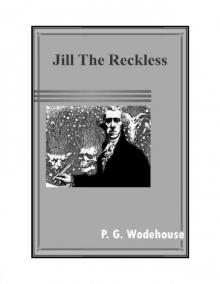 Jill the Reckless
Jill the Reckless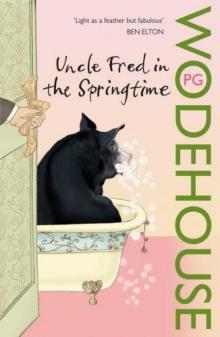 Uncle Fred in the Springtime
Uncle Fred in the Springtime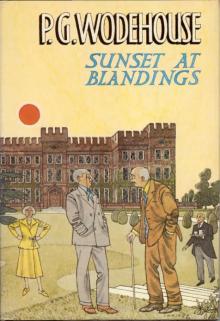 Sunset at Blandings
Sunset at Blandings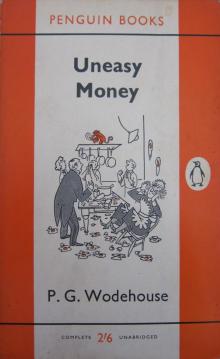 Uneasy Money
Uneasy Money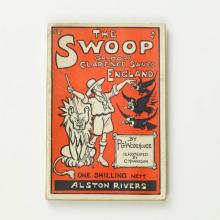 The Swoop! or, How Clarence Saved England: A Tale of the Great Invasion
The Swoop! or, How Clarence Saved England: A Tale of the Great Invasion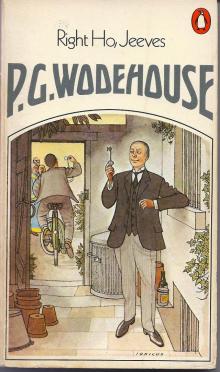 Right Ho, Jeeves
Right Ho, Jeeves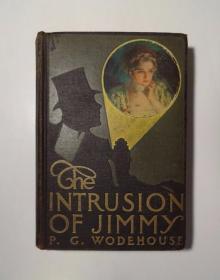 The Intrusion of Jimmy
The Intrusion of Jimmy The Jeeves Omnibus - Vol 1:
The Jeeves Omnibus - Vol 1: Aunts Aren't Gentlemen:
Aunts Aren't Gentlemen: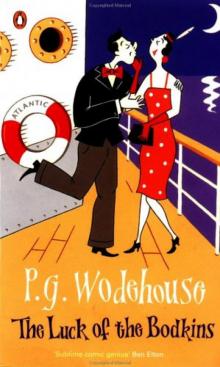 The Luck of the Bodkins
The Luck of the Bodkins The Little Nugget
The Little Nugget Money for Nothing
Money for Nothing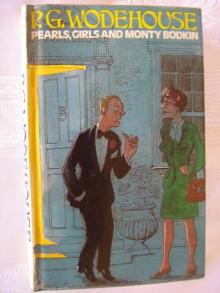 Pearls, Girls and Monty Bodkin
Pearls, Girls and Monty Bodkin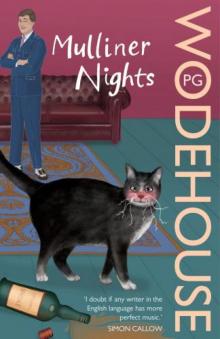 Mulliner Nights
Mulliner Nights Blandings Castle and Elsewhere
Blandings Castle and Elsewhere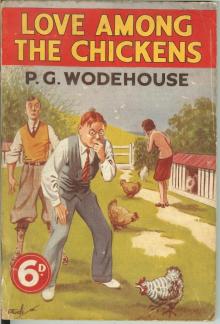 Love Among the Chickens
Love Among the Chickens Carry On, Jeeves!
Carry On, Jeeves!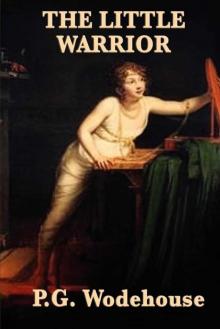 The Little Warrior
The Little Warrior Ice in the Bedroom
Ice in the Bedroom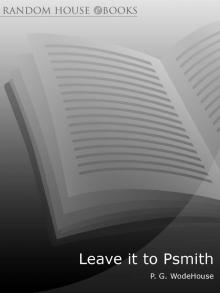 Leave It to Psmith
Leave It to Psmith Thank You, Jeeves:
Thank You, Jeeves: Money in the Bank
Money in the Bank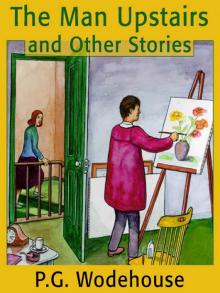 The Man Upstairs and Other Stories
The Man Upstairs and Other Stories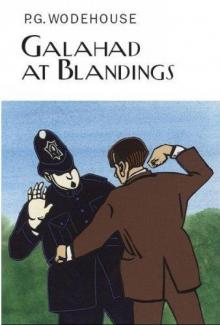 Galahad at Blandings
Galahad at Blandings The Jeeves Omnibus Vol. 5
The Jeeves Omnibus Vol. 5 Uncle Dynamite
Uncle Dynamite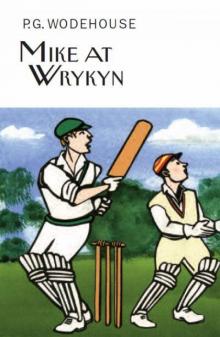 Mike at Wrykyn
Mike at Wrykyn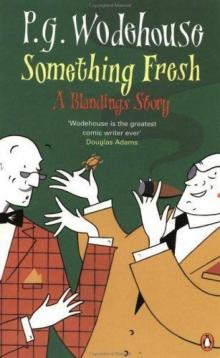 Something Fresh
Something Fresh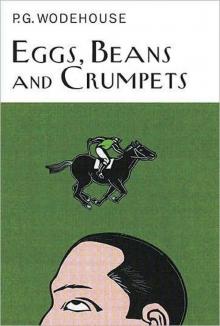 Eggs, Beans and Crumpets
Eggs, Beans and Crumpets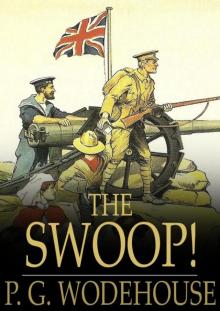 The Swoop: How Clarence Saved England (Forgotten Books)
The Swoop: How Clarence Saved England (Forgotten Books)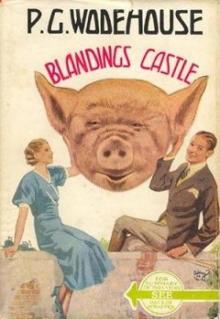 Blanding Castle Omnibus
Blanding Castle Omnibus Wodehouse at the Wicket: A Cricketing Anthology
Wodehouse at the Wicket: A Cricketing Anthology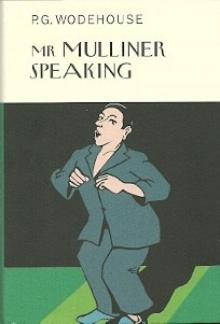 Mr. Mulliner Speaking
Mr. Mulliner Speaking Hot Water
Hot Water The Jeeves Omnibus - Vol 3: The Mating Season / Ring for Jeeves / Very Good, Jeeves
The Jeeves Omnibus - Vol 3: The Mating Season / Ring for Jeeves / Very Good, Jeeves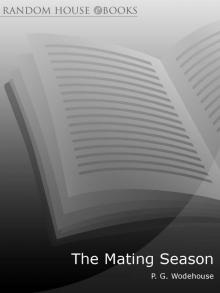 The Mating Season
The Mating Season Meet Mr. Mulliner
Meet Mr. Mulliner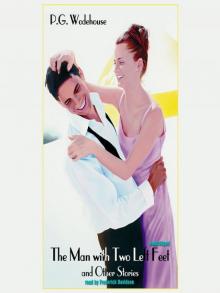 The Man with Two Left Feet, and Other Stories
The Man with Two Left Feet, and Other Stories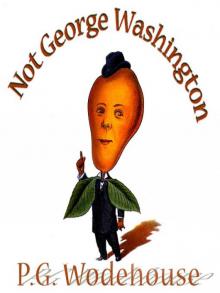 Not George Washington — an Autobiographical Novel
Not George Washington — an Autobiographical Novel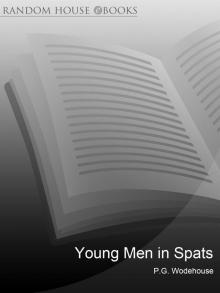 Young Men in Spats
Young Men in Spats The Jeeves Omnibus Vol. 4
The Jeeves Omnibus Vol. 4 A Pelican at Blandings:
A Pelican at Blandings: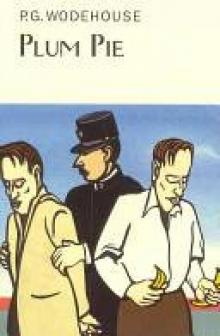 Plum Pie
Plum Pie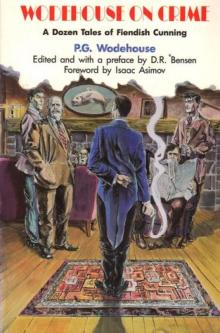 Wodehouse On Crime
Wodehouse On Crime The Jeeves Omnibus Vol. 2: Right Ho, Jeeves / Joy in the Morning / Carry On, Jeeves
The Jeeves Omnibus Vol. 2: Right Ho, Jeeves / Joy in the Morning / Carry On, Jeeves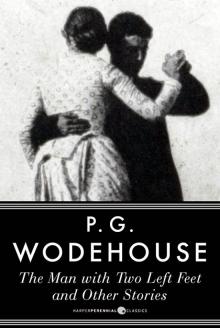 The Man With Two Left Feet
The Man With Two Left Feet Full Moon:
Full Moon: Jeeves and the Feudal Spirit:
Jeeves and the Feudal Spirit: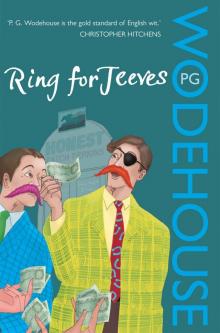 Ring For Jeeves
Ring For Jeeves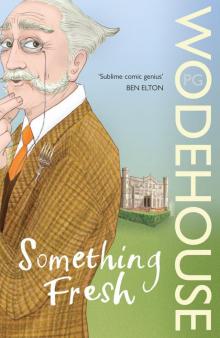 Something New
Something New The Girl on the Boat
The Girl on the Boat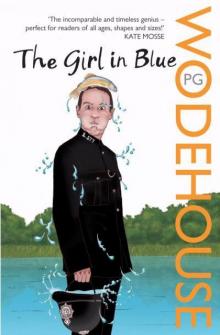 The Girl in Blue
The Girl in Blue Pigs Have Wings:
Pigs Have Wings: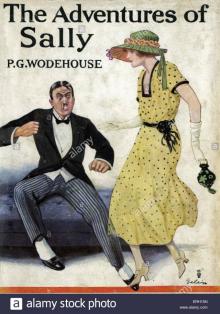 The Adventures of Sally
The Adventures of Sally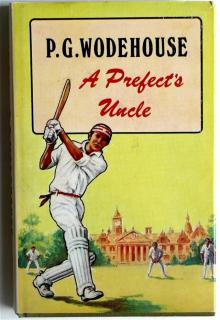 A Prefect's Uncle
A Prefect's Uncle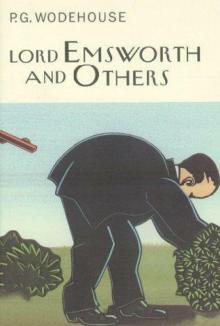 Lord Emsworth and Others
Lord Emsworth and Others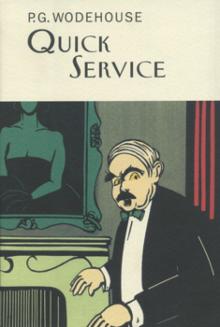 Quick Service
Quick Service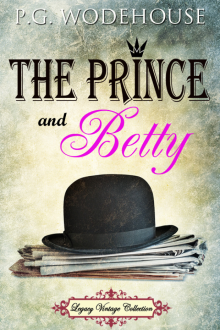 The Prince and Betty
The Prince and Betty The Gem Collector
The Gem Collector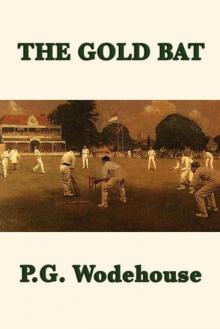 The Gold Bat
The Gold Bat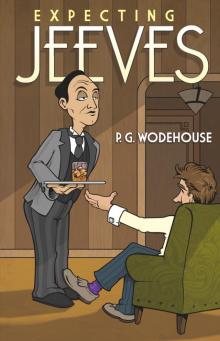 Expecting Jeeves
Expecting Jeeves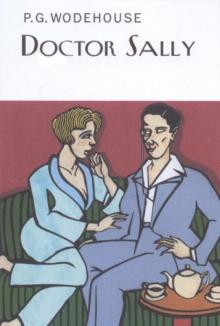 Doctor Sally
Doctor Sally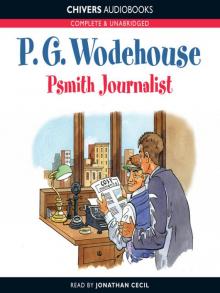 Psmith, Journalist
Psmith, Journalist The Golf Omnibus
The Golf Omnibus Heavy Weather
Heavy Weather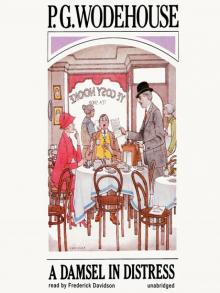 A Damsel in Distress
A Damsel in Distress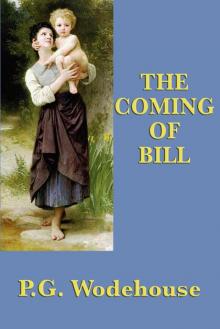 The Coming of Bill
The Coming of Bill Summer Lightning
Summer Lightning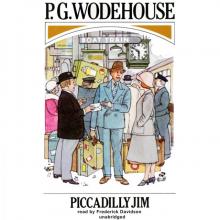 Piccadilly Jim
Piccadilly Jim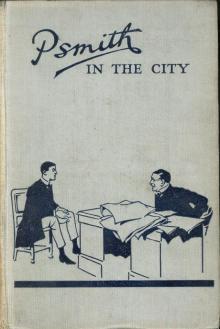 Psmith in the City
Psmith in the City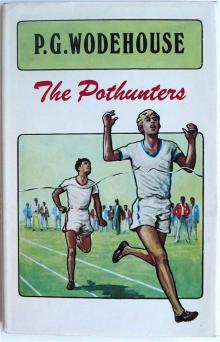 The Pothunters
The Pothunters Service With a Smile
Service With a Smile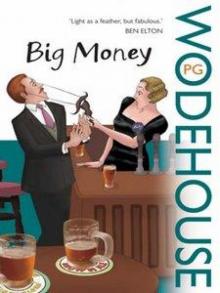 Big Money
Big Money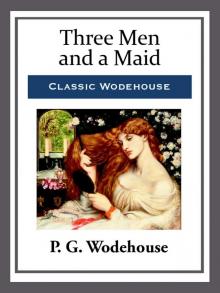 Three Men and a Maid
Three Men and a Maid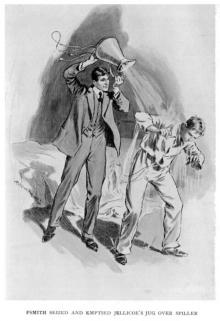 Mike and Psmith
Mike and Psmith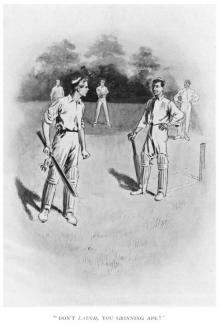 Mike
Mike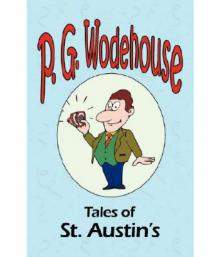 Tales of St. Austin's
Tales of St. Austin's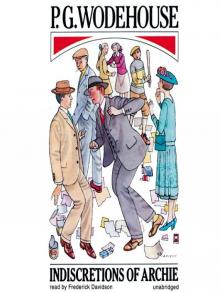 Indiscretions of Archie
Indiscretions of Archie Pigs Have Wings
Pigs Have Wings The Jeeves Omnibus - Vol 4: (Jeeves & Wooster): No.4
The Jeeves Omnibus - Vol 4: (Jeeves & Wooster): No.4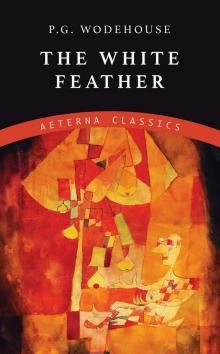 The White Feather
The White Feather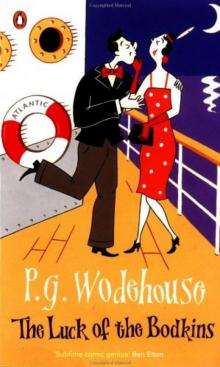 Luck of the Bodkins
Luck of the Bodkins THE SPRING SUIT
THE SPRING SUIT Full Moon
Full Moon Very Good, Jeeves
Very Good, Jeeves Thank You, Jeeves
Thank You, Jeeves Reginald's Record Knock.
Reginald's Record Knock. Wodehouse At the Wicket
Wodehouse At the Wicket LADIES AND GENTLEMEN V. PLAYERS
LADIES AND GENTLEMEN V. PLAYERS The Jeeves Omnibus - Vol 5: (Jeeves & Wooster)
The Jeeves Omnibus - Vol 5: (Jeeves & Wooster) The Jeeves Omnibus - Vol 1: (Jeeves & Wooster): No.1
The Jeeves Omnibus - Vol 1: (Jeeves & Wooster): No.1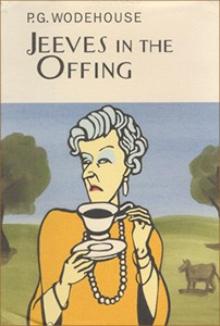 Jeeves in the offing jaw-12
Jeeves in the offing jaw-12